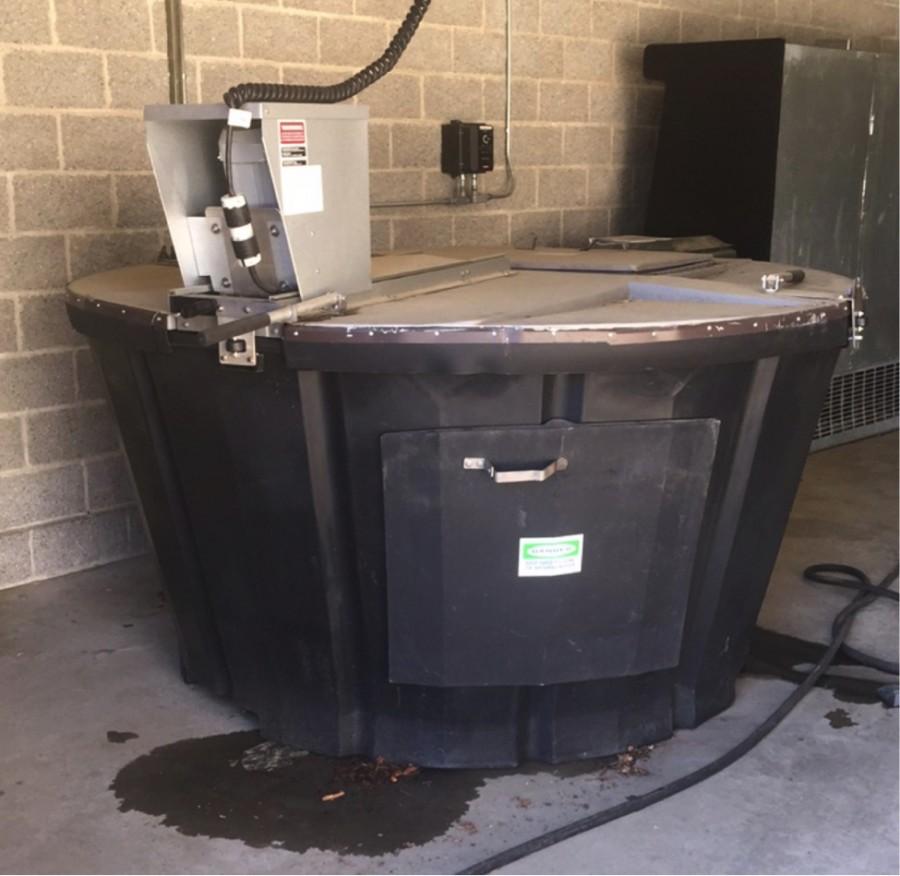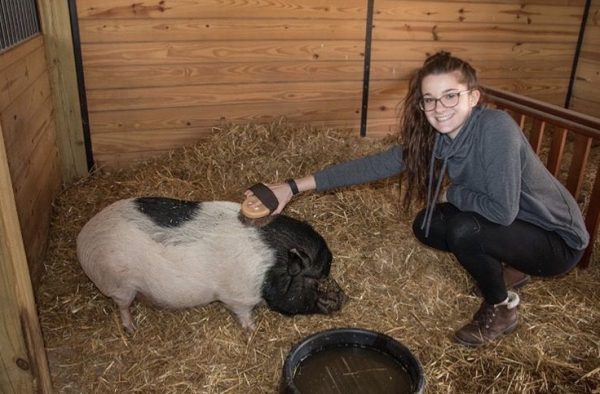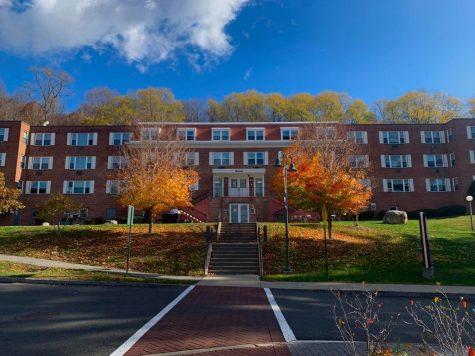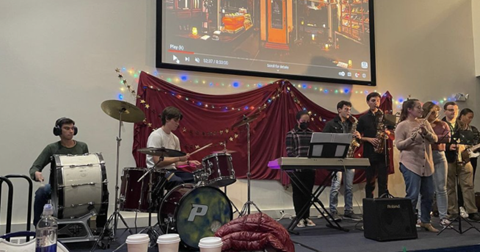Pace’s Earth Tub Creates Compost
March 1, 2016
Pace’s Sustainability Committee introduced the Earth Tub to Kessel Student Center in order to turn unused food parts into rich compost that can be used on the rest of the campus.
The Earth Tub uses an aerobic composting process, which requires putting food waste into the tub, along with a bulking agent –like woodchips, mulch, or hay, which produces microbes to break down the food.
It takes about three weeks for the microbes to consume the food, die off, and then produce compost, which is then cured and can be applied to the campus.
Dining services provides the food scraps that are turned into compost. New scraps and bulking agent are placed in it at the beginning of each day.
“The food is what we call ‘pre consumer food scraps’, in the kitchen when [the chefs] are preparing for the day they will put in things like pineapple tops, watermelon rinds, or food that has been prepared for catering that hasn’t been touched at all,” Director of Pace Academy for Applied Environmental Studies Michelle Land said.
Currently the device has only used vegetation scraps, but it will be able to compost meat and dairy products once it reaches 130 degrees.
“There is no heater heating this thing, but all the little live microbes are in here eating the food and turning it into compost. [The Earth Tub’s temperature] is still climbing, it’s at 120 degrees; it’s almost at the ideal temperature of 130 degrees,” Land said. “Once it reaches that ideal temperature we can start putting meat scarps in it. If you put meat and dairy scarps in it now, it would smell and take longer to break down.”
The tub is sealed enough so that the smell does not escape and attract vermin.
The Earth Tub’s capacity is around 100 pounds a day –between the food and bulking agent, the average amount of food recycled is 40 gallons a day.
To lessen the smell of decay, the device also has a bio-filter, which pulls out the old air inside the tub and replaces it with air scented by pine bark.
The tub has been on campus for two weeks. The idea for this project came from the Sustainability Committee. Plans started April of last year, and the tub was bought June with unused funds from Auxiliary Services.
“We all discussed it as a group and decided this should be a priority. All the students were saying ‘why aren’t we composting food, this is crazy, we’ve got all grounds we could be applying compost too,’” Land said. “We don’t have to fertilize now because this is so rich.”














